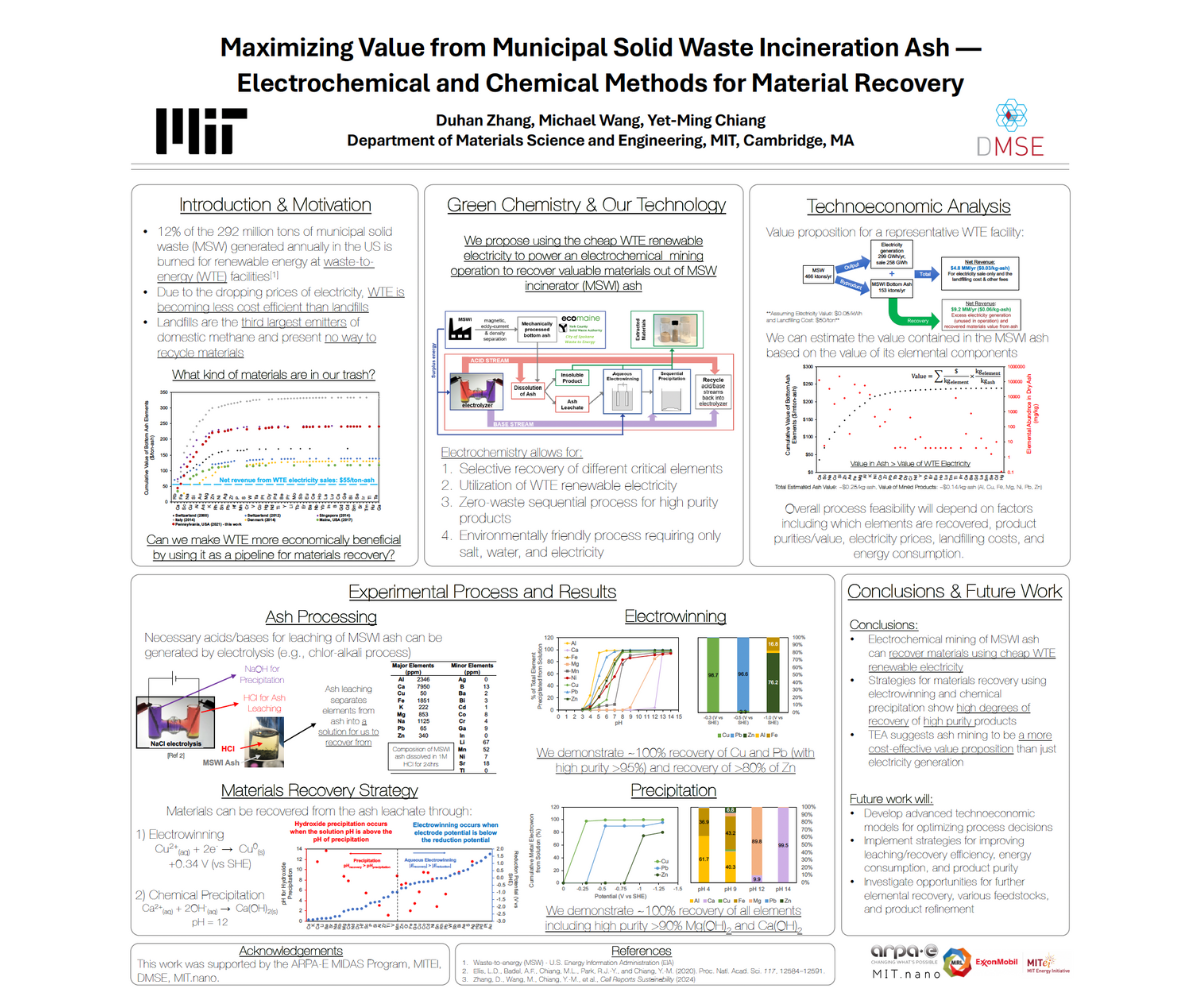
Publication Date
Municipal solid waste incineration (MSWI) plays a critical role in our waste and energy ecosystem by reducing waste volume and generating electricity. However, the economic viability of MSW incinerators is at risk due to declining electricity prices. Meanwhile, MSWI ash represents an untapped resource for valuable compounds, with an embodied value of $100–$400/tonne, contrasted with incurred landfilling expenses (∼$50/tonne). Here, we propose an integrated process utilizing MSWI electricity to power electrochemical and chemical processes for mining MSWI ash. We demonstrate a sequential process of leaching, electrowinning, and hydroxide precipitation, utilizing electrolytically produced reagents, to recover elements from the ash with purified silica as a co-product. We demonstrate >90% recovery of target elements, with purities >90% for most elements. Additionally, our technoeconomic analyses suggest that the net economic returns are double those of current MSWI practices based on the sale of electricity. The proposed process can be extended to waste streams beyond MSWI ash.
Field of Interest
Source
Massachusetts Institute of Technology
Specify "Other" Interest
renewable energy